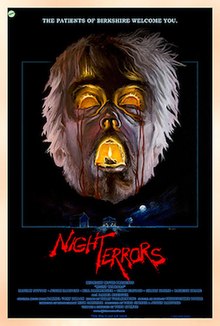
Horror is a film genre that seeks to elicit fear or disgust in its audience for entertainment purposes.
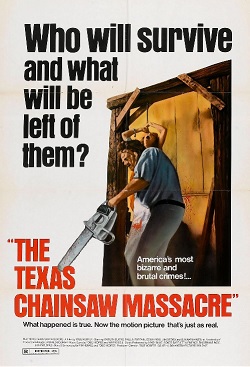
The Texas Chain Saw Massacre is a 1974 American independent horror film produced, co-composed, and directed by Tobe Hooper, who co-wrote it with Kim Henkel. The film stars Marilyn Burns, Paul A. Partain, Edwin Neal, Jim Siedow, and Gunnar Hansen. The plot follows a group of friends who fall victim to a family of cannibals while on their way to visit an old homestead. The film was marketed as being based on true events to attract a wider audience and to act as a subtle commentary on the era's political climate. Although the character of Leatherface and minor story details were inspired by the crimes of murderer Ed Gein, its plot is largely fictional.

Wesley Earl Craven was an American film director, screenwriter, producer, actor, and editor. Amongst his prolific filmography, Craven was best known for his pioneering work in the horror genre, particularly slasher films, where he mixed horror cliches with humor and satire. Craven has commonly been recognized as one of the greatest masters of the horror genre due to the cultural impact and influence of his work.

Willard Tobe Hooper was an American filmmaker, best known for his work in the horror genre. The British Film Institute cited Hooper as one of the most influential horror filmmakers of all time.

The Texas Chainsaw Massacre 2 is a 1986 American black comedy slasher film co-composed and directed by Tobe Hooper and written by L. M. Kit Carson. It is the sequel to The Texas Chain Saw Massacre (1974) and the second installment in The Texas Chainsaw Massacre film series. The film stars Dennis Hopper, Caroline Williams, Bill Johnson, Bill Moseley, and Jim Siedow. The plot follows Vanita "Stretch" Brock, a radio host who is victimized and abducted by Leatherface and his cannibalistic family; meanwhile, Lt. Boude "Lefty" Enright, the uncle of Sally and Franklin Hardesty—both prior victims of the family—hunts them down.
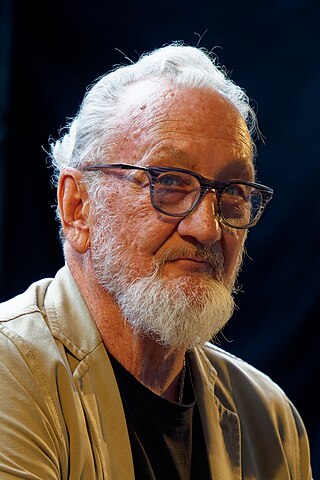
Robert Barton Englund is an American actor and director, best known for playing the supernatural serial killer Freddy Krueger in the Nightmare on Elm Street film series. Classically trained at the Royal Academy of Dramatic Art, Englund began his career as a stage actor in regional theatre, and made his film debut in Buster and Billie in 1974. After supporting roles in films in the 1970s such as Stay Hungry, A Star Is Born, and Big Wednesday, Englund had his breakthrough as the resistance fighter Willie in the miniseries V in 1983. Following his performance in the original A Nightmare on Elm Street in 1984, he became closely associated with the horror film genre, and is widely-regarded as one of its iconic actors.
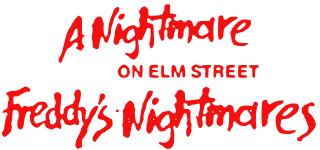
Freddy's Nightmares is an American horror anthology television series, which aired in syndication from October 1988 until March 1990. A spin-off from the A Nightmare on Elm Street film series, each episode is introduced by Freddy Krueger, and features two different stories, with eight of them throughout the series actually having Freddy Krueger as the main antagonist. The pilot episode was directed by Tobe Hooper, and begins with Krueger's prosecution on child-murdering charges.
John Kenneth Muir is an American literary critic. As of 2022, he has written thirty reference books in the fields of film and television, with a particular focus on the horror and science fiction genres.
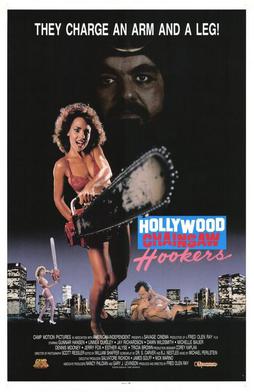
Hollywood Chainsaw Hookers is a 1988 American black comedy horror film directed by Fred Olen Ray, and starring Gunnar Hansen, Linnea Quigley, Jay Richardson and Michelle Bauer. It is known as a B-movie.
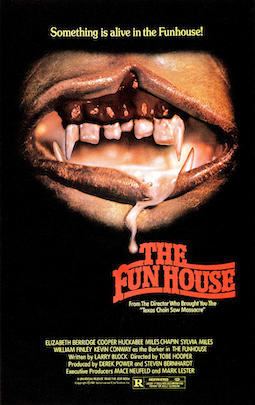
The Funhouse is a 1981 American slasher film directed by Tobe Hooper, written by Larry Block and starring Elizabeth Berridge, Kevin Conway, William Finley, Cooper Huckabee, Miles Chapin, Largo Woodruff, Wayne Doba, and Sylvia Miles. The film's plot concerns four teenagers who become trapped in a dark ride at a local carnival in Iowa and are stalked by a mentally disabled murderous carnie.
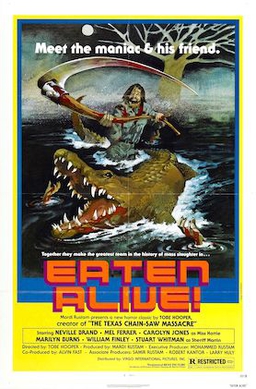
Eaten Alive is a 1976 American horror film directed by Tobe Hooper, and written by Kim Henkel, Alvin L. Fast, and Mardi Rustam.
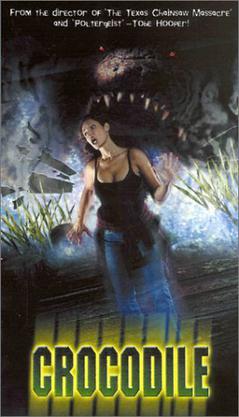
Crocodile is a 2000 American direct-to-video horror film directed by Tobe Hooper. The film involves a group of college students on a houseboat for spring break who stumble across a nest of eggs, and unknowingly enrage a large female Nile crocodile that stalks and kills them one by one. It was followed by Crocodile 2: Death Swamp, a film with no relation to the plot of the original beyond featuring a giant crocodile.

There have been many and varied references to the Marquis de Sade in popular culture, including fictional works, biographies and more minor references. The namesake of the psychological and subcultural term sadism, his name is used variously to evoke sexual violence, licentiousness and freedom of speech. In modern culture his works are simultaneously viewed as masterful analyses of how power and economics work, and as erotica. Sade's sexually explicit works were a medium for the articulation of the corrupt and hypocritical values of the elite in his society, which caused him to become imprisoned. He thus became a symbol of the artist's struggle with the censor. Sade's use of pornographic devices to create provocative works that subvert the prevailing moral values of his time inspired many other artists in a variety of media. The cruelties depicted in his works gave rise to the concept of sadism. Sade's works have to this day been kept alive by artists and intellectuals because they espouse a philosophy of extreme individualism that became reality in the economic liberalism of the following centuries.
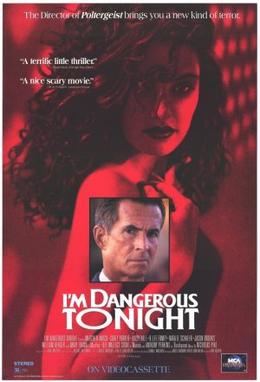
I'm Dangerous Tonight is a 1990 American made-for-television supernatural horror film directed by Tobe Hooper and starring Mädchen Amick, Corey Parker, R. Lee Ermey and Anthony Perkins. It made its debut on USA Network on August 8, 1990. It was loosely inspired by the novella of the same name by Cornell Woolrich.

Spontaneous Combustion is a 1990 American science fiction horror film directed by Tobe Hooper. It was written by Tobe Hooper and Howard Goldberg, based on a story by Hooper, and is a co-production between Henry Bushkin, Sanford Hampton, Jerrold W. Lambert, Jim Rogers and Arthur M. Sarkissian.
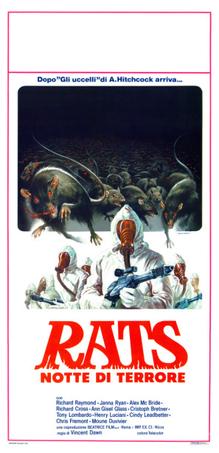
Rats: Night of Terror is a 1984 post-apocalyptic horror film directed by Bruno Mattei about a biker-gang that find themselves trapped in an abandoned research lab fighting for their lives against hordes of bloodthirsty killer rats.

Robert A. Burns was an American art director, production designer, and actor who worked on many films including The Texas Chain Saw Massacre, The Hills Have Eyes, The Howling, Re-Animator, and From Beyond.

Eugenie… The Story of Her Journey into Perversion is a 1970 British sexploitation horror film directed by Jesús Franco, and starring Maria Rohm, Marie Liljedahl, Jack Taylor, and Christopher Lee. A modern-day adaptation of the Marquis de Sade's book Philosophy in the Bedroom (1795), the film follows a teenage girl who, after accepting an invitation to vacation on island with a woman and her brother, instead finds herself at the center of a series of disturbing sexual experiments.

The history of horror films was described by author Siegbert Solomon Prawer as difficult to read as a linear historical path, with the genre changing throughout the decades, based on the state of cinema, audience tastes and contemporary world events.
